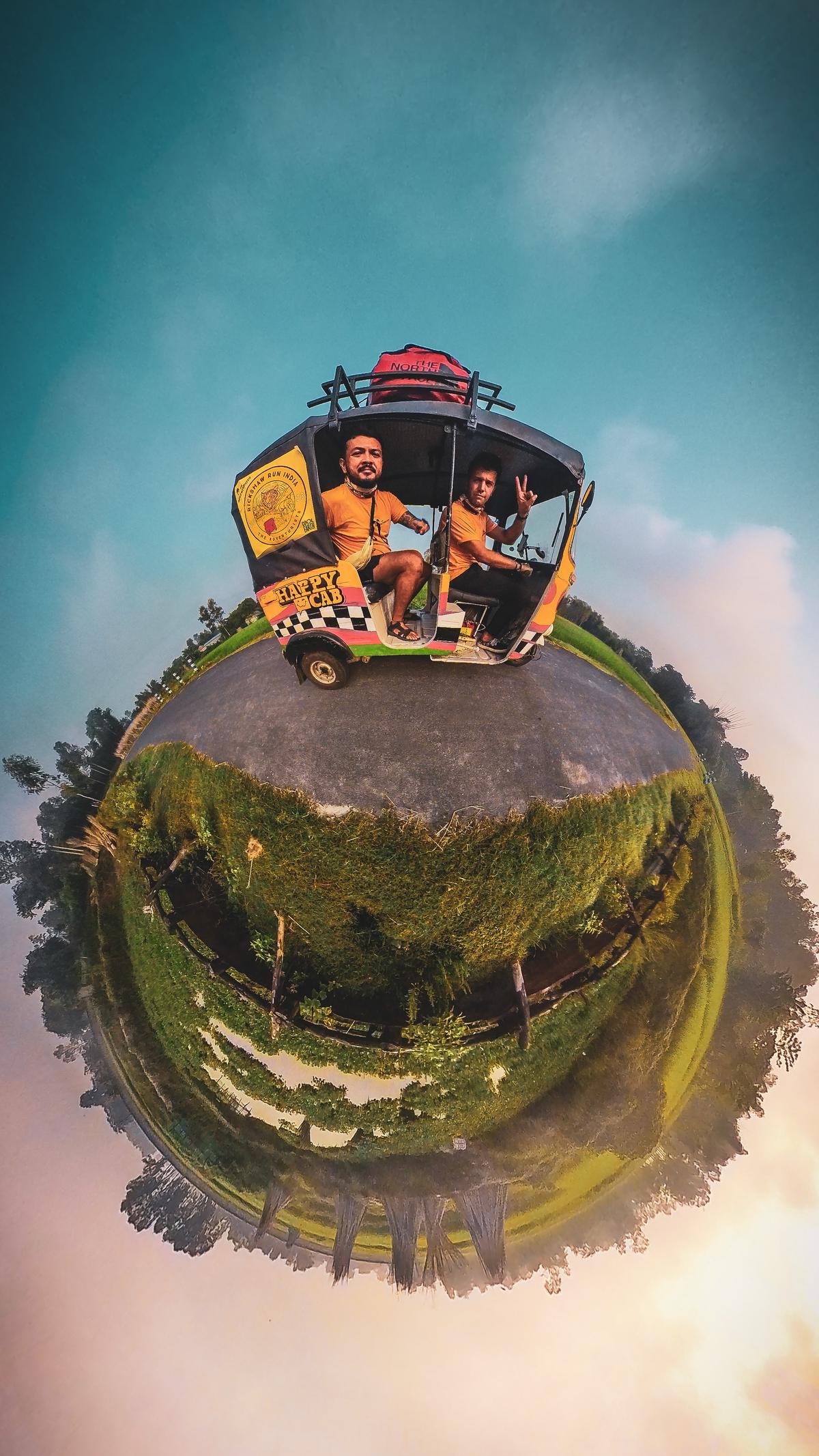Thomas Dohm and Nicholas Hon with their happy cab.
| Photo Credit: Special Arrangement
A common sight on Indian roads, three-wheeled auto rickshaws are one of the most convenient modes of transport. But for Thomas Dohm from France and Nicholas Hon from Malaysia, it was an adventure of a lifetime to travel in a tuk-tuk (as rickshaws are called in certain Asian countries) that took them on a journey covering 3,000 kilometres in India, navigating potholes and ditches, uneven roads and congested cities, water-logged streets, speed bumps and traffic amid some breathtaking sights. It was a ride to remember like no other, they say. The two former colleagues-turned-friends signed up for the September edition of Rickshaw Run India, a race that is organised multiple times in a year by The Adventurists, to explore the country in a unique way.
When the duo started off in an auto rickshaw nicknamed The Happy Cab, their goal was clear. They were not here to win or lose but to take the adventurous journey to a different level. “ We set our mind on crisscrossing the country to spread awareness about mental health and de-stigmatise taboos surrounding it,” says Thomas, over a phone call from Fort Kochi where they touched the finish line of the race that started on September 11 in Gangtok.
While the other participants raced to finish the expedition through towns and cities in 14 days, Thomas and Nicholas chose to take detours through remote villages on the way. “We have always been vocal about mental health issues and its implications, and the race gave us a platform to connect with people in India and make a real time impact,” says Nicholas.

Thomas Dohm and Nicholas Hon on a ride with a mission
| Photo Credit:
Special Arrangement
To carry forward their project, the duo collaborated with Goa-based NGO Sangath, which works in several Indian states to make mental healthcare service accessible and affordable.
Together, they launched a new initiative #HappyCab, to offer counselling and logistical support to people en route their destination. Armed with video-conferencing facilities and enough literature on the subject, the duo set off in their bright yellow painted autorickshaw and stopping at will to meet people. “The idea was to give people a free ride and also free consultation. We reached out to people and went to the hinterlands (including Brahmapur in Odisha, Raiganj in West Bengal, Dindi in Andhra Pradesh) where discussing mental health is still a taboo,” says Thomas. Wherever they went, they distributed fliers that had a QR code to guide the person to mental health resources and provided a toll-free helpline number as well.
Since the duo anticipated the language barrier as a major challenge in their journey, Sangath helped them with fliers and posters printed in different local languages. Even counsellors were picked up on the way for short rides to provide services to those seeking help, at a nominal fee.
“In our corporate job, we have seen multiple instances of people who suffered burn-outs, anxiety and other issues. The journey across India took us to many more such people trying to figure a way out.,” says Nicholas. He adds the road journey gave him the opportunity to connect with his relatives on his mother’s side, as she is an Indian. “The trip acquired meaning and sentiments,” he says.
.
“Due to the detours, we could not reach the finishing line on time but we feel happy about covering a lot of ground with our social message. We may have lost the race but it feels like we have won,” says Thomas.






